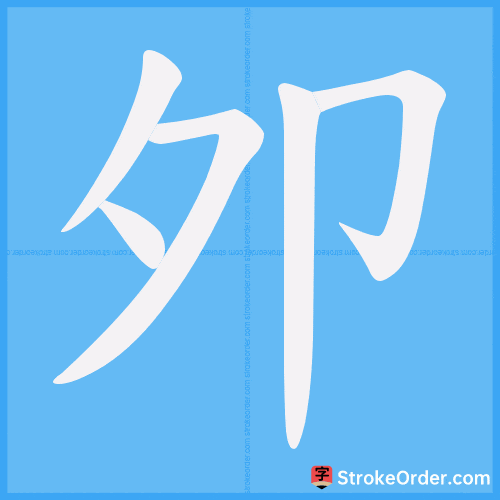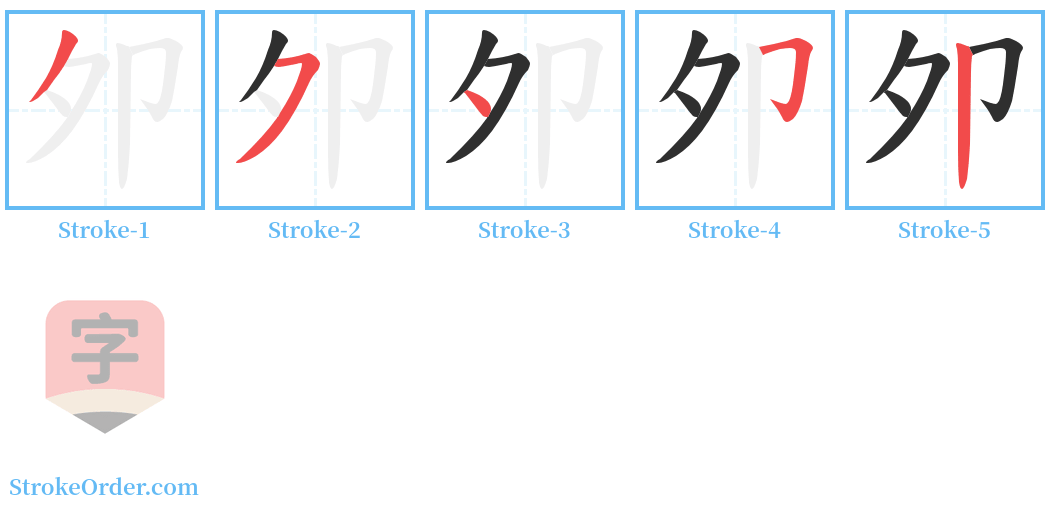夘 Stroke Order
Animated Stroke Order of 夘

Stroke Order Diagrams for 夘

Information of 夘
Pinyin
mǎo、 wǎn
Radical
夕
Strokes
5 strokes
Usage
★★
Definition
夘
1. Ancient same as “卯” (mǎo).
2. Sacrifice, one of the methods used in the Yin Shang dynasty involving livestock.
3. Refers to the "rabbit" in the twelve zodiac animals. Wang Chong recorded in "Lunheng": "卯 (mǎo) means rabbit."
4. In ancient times, a term used to refer to the activities of roll call and reporting at the beginning of work in official offices. From "Water Margin", Chapter 24: "Uncle, it's time for the roll call, come back early for dinner."
5. The opening period for minting coins in ancient times was called “卯”, and each time it was minted was also referred to as “卯”. As noted in "Qing Hui Dian", Ministry of Public Works: "For all bronze casting, divide the furnace seats and check the weights; the release of the coins shall be reported to the Ministry."
6. In the Qing dynasty, deadlines for collecting taxes and tributes were sometimes divided by installments called "比卯". Each report period was referred to as the corresponding “卯”. Wu Jianren in "Twenty Years of Observing Strange Phenomena": "You go back and copy the numbers for each installment and ranking; I'll find a way to request a certificate."
7. A specialized term used in a game during the Ming dynasty.
8. The hole in woodwork for fitting a tenon. Zhai Hao noted in "Popular Works": "Zhou Chengzi's sayings: 'Tenon and mortise, if round then round; if square then square.' Mortise refers to the mortise hole."
9. Liu Tong and Yu Yizheng noted in "A Brief Account of the Capital": "Draw a square city, place a clay coin inside, called "卯". It also refers to "昴", a name of a star group."
10. Shen Tao in his reply to Duan Maotang: "卯 is the same as the character '昴'."
11. A surname. Yang Shen noted in "Records of Surnames": "There is a surname '卯' in Yunnan today."
1. Ancient same as "夗" (mǎo).